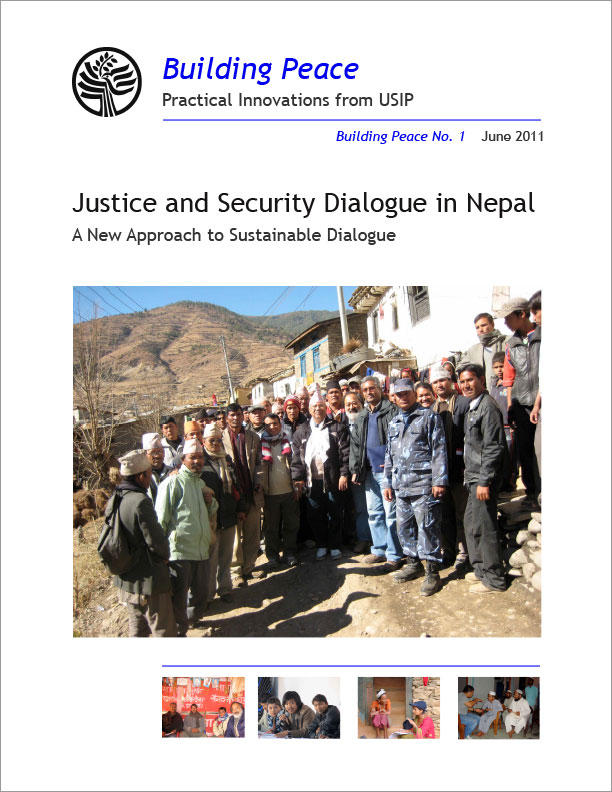Countries emerging from conflict will never achieve either security or justice unless civil society and security agencies learn to work together. This report describes a new approach to promoting dialogue and cooperation that has enabled the Nepal Police and local communities to bridge the gulf of mistrust and together start tackling crime and instability. This approach is now being customized to work in other war-torn societies.

Summary
Problem Identified
- As Nepal has discovered, maintaining law and order gets tougher, not easier, once a peace agreement is signed. Crime rises and politics spills into the streets. Civilians want protection, but they don't trust the security forces. Those forces can't tackle soaring crime without community support. Building trust and cooperation between the public and the security forces is not an optional extra; it's essential to postconflict stability.
Action Taken
- In Nepal, USIP's Justice and Security Dialogue (JSD) program has been bringing together members of the civilian police and local communities to dispel prejudices, nurture relationships, and develop joint responses to common concerns. JSD also involves political party leaders, local government officials, NGOs, and businesspeople.
- JSD works by emphasizing partnerships: international-national, national-local, police-civilian, etc. JSD evolved from and is still steered by a partnership between the top ranks of the Nepal Police and leading figures from Nepal's civil rights community.
Lessons Learned
- Partnerships take time to build, but they're worth the effort. Partnerships encourage buy-in from all sides, prevent outsiders ignoring local needs, let everyone play to their strength, and enable JSD to operate on multiple levels simultaneously.
- JSD delivers practical results that all stakeholders appreciate. Local communities work with the police to tackle crime and defuse conflict in villages and towns. The Nepal Police gets data with which to push for more resources and internal reforms. The government feeds local-level ideas into its policymaking process.
- JSD can be customized to work in other countries emerging from conflict. JSD has been distilled into a flexible framework for use in Iraq, Sudan, and Afghanistan. UN and U.S. agencies are considering other applications.
About the Report
The Building Peace series reports on innovative work by USIP that has practical applications for peacemakers and peacebuilders. The goal is to get useful knowledge into the hands of practitioners promptly. Some of the work reported in Building Peace is recent, some is ongoing. All of it has been tested, usually in the field, but this is work in progress and feedback is warmly welcomed. Please send all comments on this report to the director of USIP's Rule of Law Center of Innovation, Colette Rausch, at crausch@usip.org. Your feedback will help USIP in its mission to turn ideas into action, to learn lessons form what it does, and to feed those ideas into new thinking and new action.